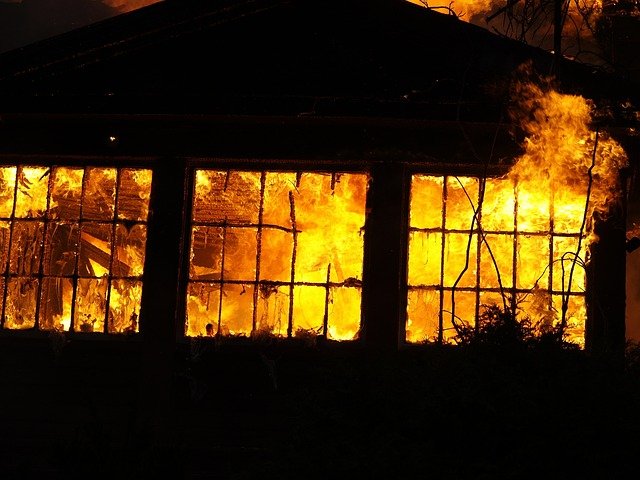Firefighters are making progress, but the blaze continues to “smolder and creep” in Ventura, California, and winds may pick up once again.
VENTURA, Calif. — Firefighters have made significant strides in controlling a massive wildfire that has burned more than 32 square miles north of Los Angeles, damaging or destroying nearly 250 homes, businesses, and other structures. The fire is still active, “smoldering and creeping” through rugged terrain.
The California Department of Forestry and Fire Protection (Cal Fire) reported that the fire was 42% contained on Monday, but it still posed a threat to critical infrastructure, highways, and surrounding communities. Since Thursday evening, the fire’s size has remained stable at approximately 20,630 acres (around 8,350 hectares).
Weather conditions have been favorable for firefighters, allowing them to establish control lines. However, the National Weather Service warned that winds could reach 20 to 30 mph on Monday afternoon, with gusts up to 40 mph. These winds are much weaker than those that initially spread the fire last week.
The cause of the fire, which broke out on Wednesday and was fanned by winds of up to 80 mph, is still under investigation. Six people have been reported injured. At a public meeting on Sunday night, Ventura County Fire Chief Dustin Gardner praised the “heroic” efforts of the first responders.
“I’m grateful for the lives that were saved and the fact that there have been no reported fatalities,” Gardner said, drawing applause from the crowd. “I know the damage is significant, but thousands of homes were saved, and hundreds of lives were spared.”
Some Evacuation Orders Lifted
Gardner shared that the first firefighters on the scene worked for 30 hours straight without rest. Within 24 hours, more than 1,000 firefighters were engaged in firefighting efforts, and by Monday, over 2,800 firefighters from across the region were working to control the blaze.
While some mandatory evacuation orders were still in effect on Monday, Gardner noted that certain residents had been allowed to return to their homes.
“I know we made mistakes, but we’ll learn from them,” Gardner said. “We can rebuild, we can recover, and we will heal.”
Farmers Suffer Significant Losses in Ventura County
The wildfire has caused an estimated $2.4 million in agricultural damage, with the total expected to rise. Ventura County Agricultural Commissioner Korinne Bell reported that avocado, citrus, and berry crops were the hardest hit by the fire. The damage includes not only crops and trees but also agricultural infrastructure such as fences, irrigation lines, and outbuildings. The fire, which started on South Mountain, was pushed into agricultural areas by the strong Santa Ana winds.
Some farmers also lost their homes, said Maureen McGuire, CEO of the Ventura County Farm Bureau. “Many were out in their orchards, trying to minimize the fire’s impact on their operations and their buildings,” McGuire added.
Northeast Sees Little Relief from Drought
Despite a light rain that fell across parts of the Northeast, the region’s severe drought continues to fuel wildfires and fire warnings. Some areas received their first measurable rain in over a month on Sunday night into Monday morning, but fire risks are expected to remain high through Tuesday and beyond, according to AccuWeather.
The National Weather Service in New York reported that the tri-state area — New York, New Jersey, and Connecticut — received between 0.15 and 0.30 inches of rain. While this wasn’t much, it marked the first measurable rainfall the region had seen since late September.
“Rain has moved east, and dry conditions are expected to persist for much of the week, with only a slight chance of rain on Thursday night,” the weather service said.
Increasing Wildfires on the East Coast: What’s Driving the Surge?
No Relief from Fire Danger
A combination of warm temperatures, low humidity, and stronger winds is expected to keep fire risks high in the Northeast, even though the rain slightly reduced the fire danger in central New Jersey. The state’s fire danger dashboard had placed the entire state under an extreme risk warning in recent days.
Fires continued to rage in northern New Jersey and New York, with the first fatality reported over the weekend. New York State Police confirmed that 18-year-old state parks employee Dariel Vasquez was killed while helping fight a fire in Sterling Forest. A tree fell on Vasquez while he was clearing brush and trees.
The Jennings Creek Wildfire had expanded to 3,500 acres by Monday evening, with 20% of the fire contained. The New Jersey Forest Fire Service, which is working with New York fire authorities, reported that no buildings or critical infrastructure were threatened. Governor Kathy Hochul said 277 personnel were fighting the fire.
Jesse Dwyer, a supervisor in Warwick, N.Y., said no mandatory evacuations had been issued yet.
“While the rain helped slow the fire, it wasn’t enough,” Dwyer wrote in a Facebook post. “Please continue to pray for our responders and the residents in the affected areas.”
“Climate Change Is Real”: New York Parks Employee Killed Amid Growing Wildfire Threat
2024 on Track to Be the Hottest Year on Record
Another Year of Record Heat
Climate scientists have been predicting since early this year that 2024 would likely be the hottest year on record. With just two months remaining, it is now “virtually certain,” according to the Copernicus Climate Change Service. This year is also expected to be the first full year in which global average temperatures will be at least 2.7°C higher than pre-industrial levels, said Samantha Burgess, deputy director of the service. World leaders and climate scientists had hoped to keep global temperatures below this threshold in their efforts to curb global warming.
“This is a new milestone in global temperature records, and it should serve as a catalyst to raise ambition at the upcoming COP29 climate conference,” Burgess said. The conference begins Monday in Azerbaijan. The previous hottest year on record was 2023.








